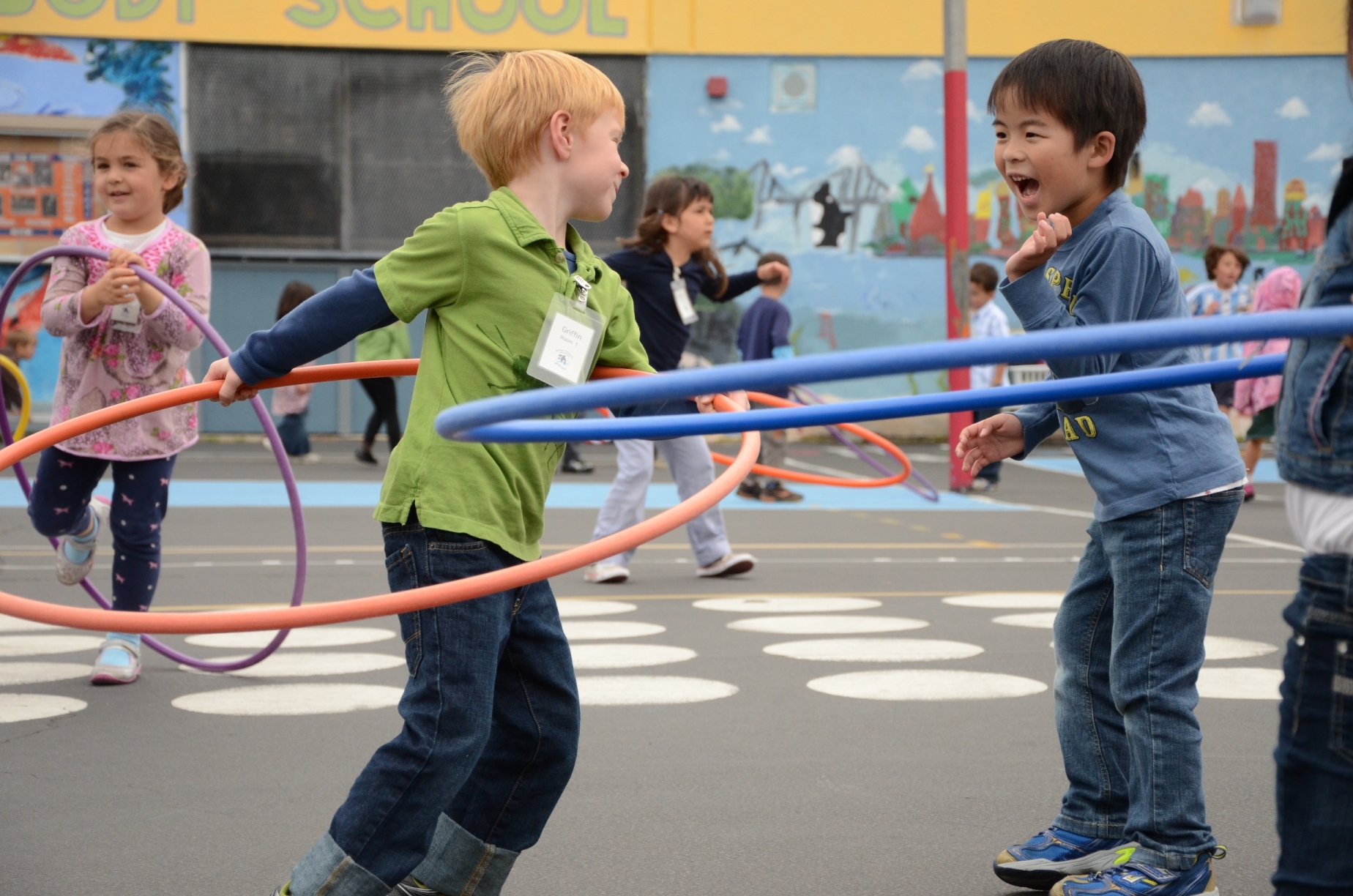
By Nancy Mancini
Schools have a strong interest in encouraging positive student behavior in order to get as much learning as possible out of each school day. In addition, helping students work and play well together and forge positive relationships with each other and their teachers is vital to their long-term success. New research conducted by Mathematica Policy Research and the John W. Gardner Center for Youth and Their Communities (JGC), with funding from the Robert Wood Johnson Foundation, examines how investing in organized play and recess – one of the least-studied parts of the school day – can benefit the entire school experience.
The randomized control trial specifically looked at what happened when schools partnered with Playworks, a national program that incorporates positive youth development themes and physical activity to improve the quality of play and conflict resolution during school recess. JGC was responsible for the implementation study, examining the implementation of the Playworks program in test schools as well as documenting the quality of recess at control schools. The study also examines the impact of the program on a variety of outcomes, including students’ physical activity levels, their academic outcomes, and youth development practices and outcomes.
The JGC research team was headed by Rebecca London, and included Lisa Westrich, Milbrey McLaughlin, Katie Stokes-Guinan, and Sebastian Castrechini.
To view a Playworks fact sheet and a copy of the full report of findings, please visit: http://www.rwjf.org/vulnerablepopulations/product.jsp?id=74194.
Subscribe to our monthly newsletter.